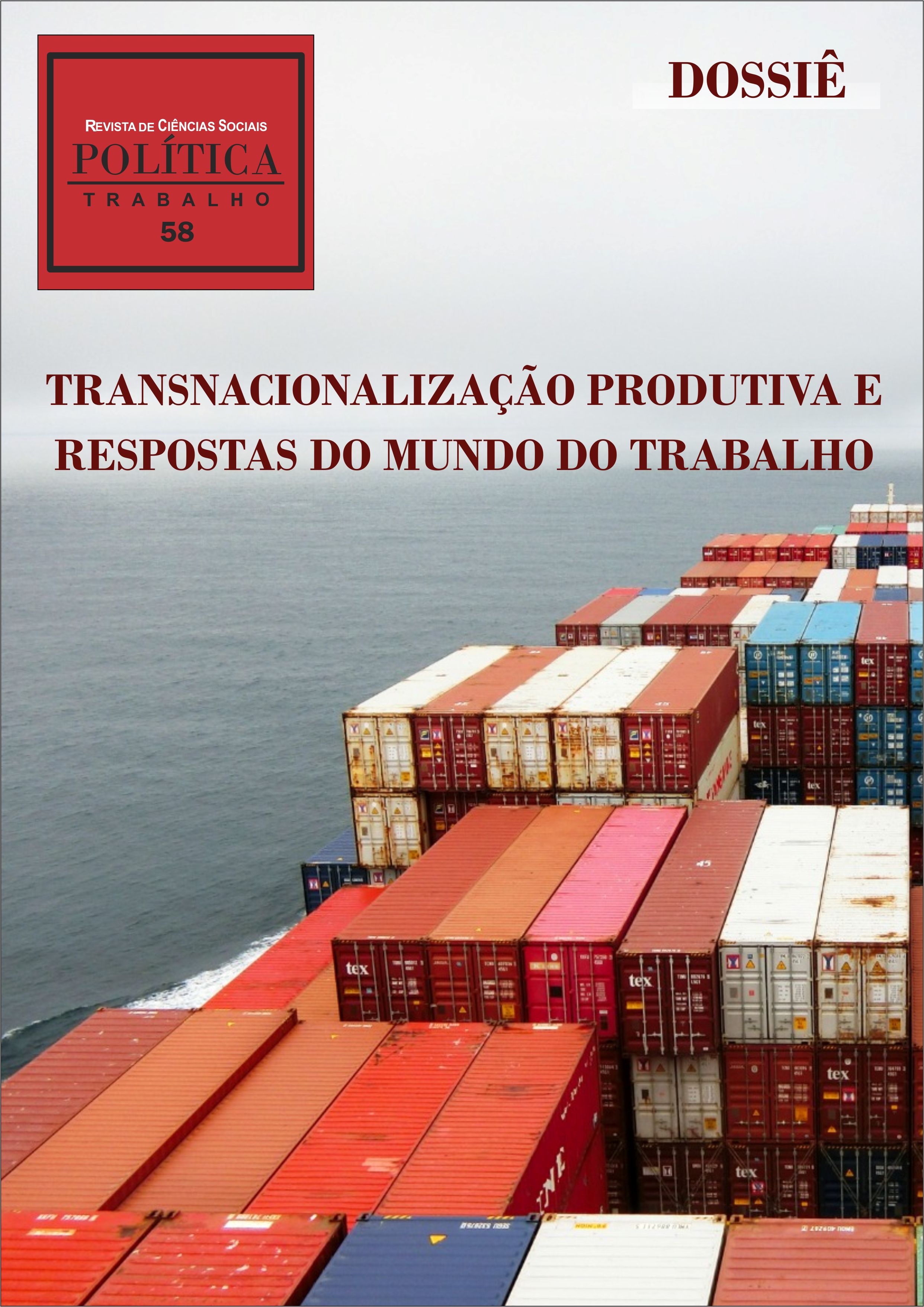COMMODITY TRADERS AND SUSTAINABLE SOY SUPPLY CHAINS IN BRAZIL
DOI:
https://doi.org/10.22478/ufpb.1517-5901.2023v1n58.65153Resumo
Global commodity traders play a key role in the purchase-sale, handling, and distribution of many of the world’s commodities. Yet, they are often criticized for adversely affecting local producers, displacing local communities, and engaging in or encouraging un-sustainable practices and outcomes. Using the case of soy supply chains in Brazil, this article describes the operations used by these companies to make profit and their efforts to become more sustainable through zero-deforestation commitments. The article shows how risk assessments surrounding local supply considerations can at times encourage or dissuade trading companies from establishing direct, traceable links to soy producers that would allow to better monitor and sanction farms cultivating on deforested land. These choices help provide the context to the “spaces” where global chains touch down, these in turn having important consequences for local development, incomes, jobs and welfare and the social impacts, forms of resistance and regulation which often emerge. The article makes an important, albeit initial and exploratory contribution to understand under what conditions might the logic of the chain governance and sustainability debate actually meet.
Downloads
Publicado
Como Citar
Edição
Seção
Licença
Copyright (c) 2023 REVISTA DE CIÊNCIAS SOCIAIS - POLÍTICA & TRABALHO

Este trabalho está licenciado sob uma licença Creative Commons Attribution-NonCommercial 4.0 International License.
DIREITOS DE AUTOR: O autor retém, sem retrições dos direitos sobre sua obra. DIREITOS DE REUTILIZAÇÃO: A Revista de Ciências Sociais - Política & Trabalho adota a Licença Creative Commons, CC BY-NC atribuição não comercial conforme a Política de Acesso Aberto ao conhecimento adotado pelo Portal de Periódicos da UFPB. Com essa licença é permitido acessar, baixar (download), copiar, imprimir, compartilhar, reutilizar e distribuir os artigos, desde que para uso não comercial e com a citação da fonte, conferindo os devidos créditos de autoria e menção à Revista de Ciências Sociais - Política & Trabalho. Nesses casos, nenhuma permissão é necessária por parte dos autores ou dos editores. DIREITOS DE DEPÓSITO DOS AUTORES/AUTOARQUIVAMENTO: Os autores são estimulados a realizarem o depósito em repositórios institucionais da versão publicada com o link do seu artigo na Revista de Ciências Sociais - Política & Trabalho.





